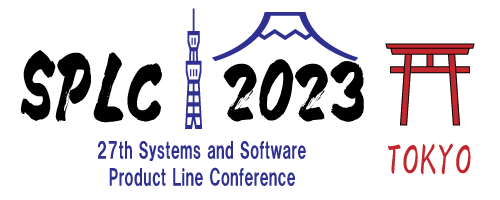Accepted tutorials for SPLC 2023
Second Tutorial on the Universal Variability Language
Presenters: Sebastian Krieter (University of Ulm, Germany), Kevin Feichtinger (Johannes Kepler University Linz, Austria), José A. Galindo (University of Seville, Spain), David Benavides (University of Seville, Spain), Rick Rabiser (Johannes Kepler University Linz, Austria), Chico Sundermann (University of Ulm, Germany), Thomas Thüm (University of Ulm, Germany)
Abstract: The Universal Variability Language (UVL) is a textual feature modeling approach that is developed in regular exchange with the community. Over the last years, the adoption of UVL in variability-modeling tools is steadily increasing. Our tutorial covers different aspects of working with UVL, such as editing, format conversion, and automated analysis, and shows recent advances in tool support.
Materials: https://github.com/Universal-Variability-Language/tutorial-splc-2023
Automata Learning for Dynamic Software Product Lines: A Tutorial
Presenter: Mohammad Reza Mousavi (King’s College London, UK)
Abstract: Automata learning is a fundamental technique for building behavioral models by actively interacting with black-box systems. Through four decades of research the community has come up with many algorithms and tools for automata learning, of which this tutorial will provide an overview. Moreover, researchers have proposed several extensions of automata learning algorithms to evolving systems, i.e., systems that change in time, as well as variability-intensive systems, i.e., systems that change in configuration space. In this tutorial, we provide an overview of such extensions and show how they can be applied to the field of dynamic software product lines.
